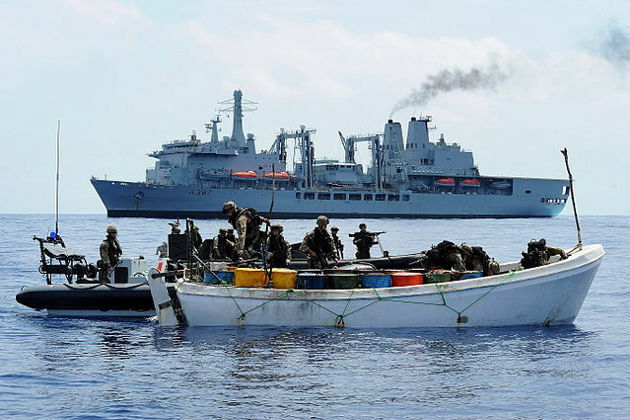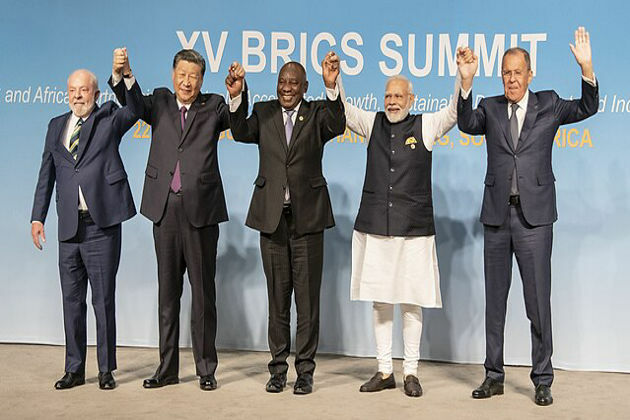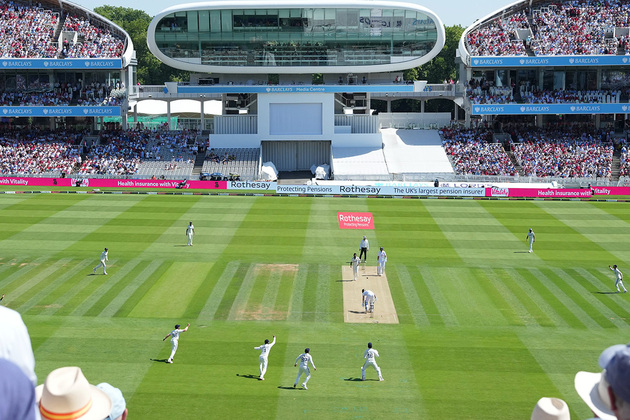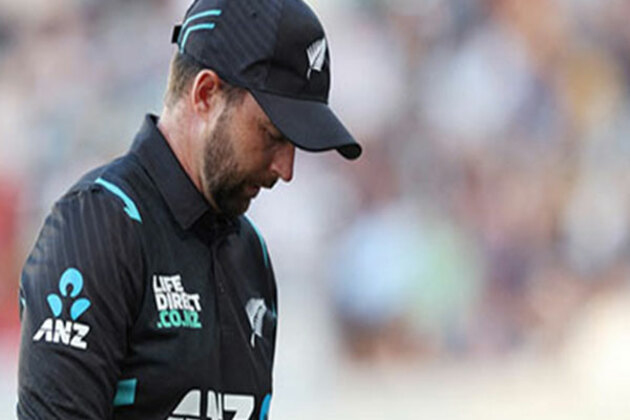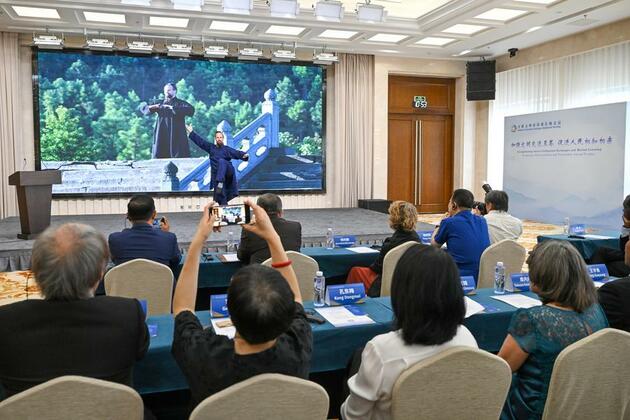Africa's urban planners face huge corruption pressures: some answers
The Conversation
24 May 2022, 20:09 GMT+10

Corruption is commonly defined as the abuse of entrusted power for personal gain.
Understanding and tackling corruption at the city-scale is crucial because cities are increasingly becoming home to much of the global population. According to the United Nations, more than two-thirds of the world's population will be living in cities by 2050. The fastest urban growth is happening in Africa and Asia.
In our Cities of Integrity project, we worked with urban planners and their respective professional bodies in South Africa and Zambia. The aim was to understand how they experience and deal with corruption in their daily practice. We also sought to imagine creative ways in which their professional community could play a role in strengthening transparency and collective accountability.
As we explain in this animated video, corruption in urban development can lead to dysfunctional infrastructure that does not meet public needs. It also hardwires injustice into city systems for decades.
Urban property is worth more than the combined value of stocks, bonds and shares globally and - especially in volatile economic times - is a hot asset class. The immense fortune that can be made from urban land and real estate also attracts unsavoury characters with a desire to bend the rules.
In this complex context, urban planners are trying to keep the balance between public needs and private interests. This makes them particularly prone to corrupt influences. This is because they allocate development rights - through zoning, for example. They also decide on the location of key public infrastructure such as roads or schools. Such decisions have a great impact on the value of land and the price of property. They can generate large windfall profits.
Under pressure
In our online survey, nearly half (46%) of the 113 South African planners said they had been asked at least once to ignore or violate a planning rule, policy or procedure to achieve a particular outcome.
A similar proportion - 43% - indicated that colleagues, superiors or senior officials had a personal interest in planning activities they oversaw, at least on occasion.
Among our 98 Zambian respondents, these numbers were even higher. 73% had been asked to favour a particular party in their decision-making.
In both countries planners flagged political interference as a major impediment to maintaining professional integrity. This was a more common complaint for Zambian planners.
For their South African peers, the greatest concern was the lack of capacity and efficiency in local government. As one respondent lamented:
Fostering professional integrity
In both countries, the majority of planners also believed that land was frequently being captured by powerful interest groups with impunity. Thus, only 15% of South African planners believed that the general public or poorer groups of society benefited most from urban development. Here, our findings also correspond with recent figures from the independent pan-African research network Afrobarometer.
It found that 67% of the general public in South Africa believed that rich people were very likely to get away with bribing officials to falsely register land that does not belong to them.
Finally, both South African and Zambian planners displayed low levels of faith in the effectiveness of current compliance-focused anti-corruption measures. A prevalent sentiment was that some planning codes were "divorced from reality". They also believed that no procedure could compensate for a lack of ethical principle. As acclaimed public affairs author and former municipal official Crispian Olver aptly noted in one of our public roundtable discussions:
Nonetheless, the majority of South African and Zambian planners still felt a strong sense of public purpose in their work. Here, our data corroborates the idea espoused by public affairs scholars Wendy Hayes and Beth Gazley that professional networks can help enforce positive value systems and thus help to proactively tackle corruption.
In both countries, respondents regarded professional training courses on ethics and integrity as priority measures to be taken by their respective professional associations. However, as our research shows, for such initiatives to not become "tick box exercises", it is important to understand the local planning context and its specific corruption pressures first, before workshopping appropriate tactics and tools to bolster professional integrity.
Collective accountability
While our research suggests that professional integrity has an important role to play in combating urban corruption, we also recognise that individual changes in behaviour alone are not enough to address urban corruption challenges on the continent. Legal reforms of outdated planning laws, public service reforms and greater transparency in procurement processes will be equally necessary.
Nonetheless, we argue that professional networks can play a key role in strengthening collective accountability among urban planners and support them in becoming champions of urban integrity.
Author: Laura Nkula-Wenz - Lecturer and Researcher at the African Centre for Cities, University of Cape Town 
 Share
Share
 Tweet
Tweet
 Share
Share
 Flip
Flip
 Email
Email
Watch latest videos
Subscribe and Follow
Get a daily dose of Cape Town Express news through our daily email, its complimentary and keeps you fully up to date with world and business news as well.
News RELEASES
Publish news of your business, community or sports group, personnel appointments, major event and more by submitting a news release to Cape Town Express.
More InformationInternational
SectionNew Hampshire federal court ruling defies Trump’s citizenship move
CONCORD, New Hampshire: A federal judge in New Hampshire issued a crucial ruling on July 10 against President Donald Trump's executive...
Houthis attack cargo ship in Red Sea, raising maritime safety fears
DUBAI, U.A.E.: A cargo ship flagged under Liberia, known as the Eternity C, sank in the Red Sea following an attack executed by Yemen's...
Trump administration restarts Ukraine arms deliveries
WASHINGTON, D.C.: The Trump administration has started sending some weapons to Ukraine again, just a week after the Pentagon told officials...
From France’s shores, desperate migrants look to reach British coast
ECAULT BEACH, France: On clear days, the white cliffs of the United Kingdom, are visible from northern France, where men, women, and...
CDC: US records 1,288 measles cases, most since 1992 outbreak
ATLANTA, Georgia: The United States is facing its worst measles outbreak in more than three decades, with 1,288 confirmed cases so...
Gaza War sucking life out of an Israeli generation
In the past month alone, 23 Israeli soldiers have been killed in Gaza—three more than the number of remaining living hostages held...
South Africa
SectionBRICS issues rebuke on trade and Iran, avoids direct US criticism
RIO DE JANEIRO, Brazil: At a two-day summit over the weekend, the BRICS bloc of emerging economies issued a joint declaration condemning...
Only four 250+ chases at Lord's: Can India join elite list?
London [UK], July 13 (ANI): As India gears up for a potential big chase at the iconic Lord's Cricket Ground, the historical odds offer...
Kiwi batter Devon Conway replaces injured Finn Allen for T20I tri-series against Zimbabwe, South Africa
New Delhi [India], July 13 (ANI): Devon Conway, Mitch Hay, Jimmy Neesham and Tim Robinson set to join the New Zealand T20I squad for...
Marc Marquez fends off Zarco for wet weather pole in Germany
Hohenstein-Ernstthal [Germany], July 13 (ANI): The wet weather has come to play on Saturday at the Liqui Moly Grand Prix of Germany,...
Jake Fraser-McGurk, Xavier Bartlett included in Australia T20I squad for West Indies series
Melbourne [Australia], July 12 (ANI): Australia made changes in their squad for the upcoming T20I series against West Indies as they...
Interview: Civilizations dialogue key to global peace, development: former S. African diplomat
BEIJING, July 12 (Xinhua) -- In today's fractured world, dialogue based on mutual respect is the right path forward, said Gert Grobler,...


